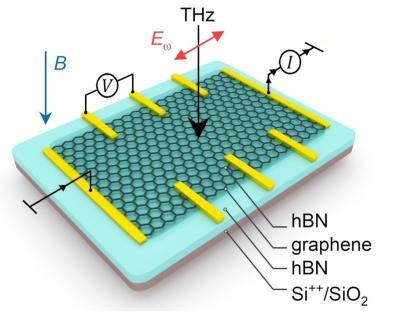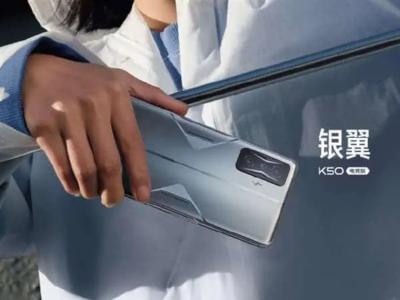The Graphene -Info newsletter ( February 22, 2022 )
posted on
Feb 23, 2022 08:30AM

Hydrothermal Graphite Deposit Ammenable for Commercial Graphene Applications

Cannot read this? View it online here
Haydale has announced it will be collaborating with Cadent Gas and the Energy Innovation Centre to develop graphene ink-based heaters for low-power hot water. The £135,000 three-stage project will run for an initial 15 months.
The graphene solution has the potential to offer a low-power way to heat water when there is an interruption to the gas supply. Currently, the provision of fan heaters and hot plates to vulnerable customers without a gas supply can be expensive and challenging, particularly for elderly or disabled customers.
Zentek has announced the patent-pending development of a graphene-wrapped silicon anode material, developed along with Prof. Michael Pope, an Associate Professor in the Department of Chemical Engineering at the University of Waterloo, and in collaboration Dr. Marianna Uceda and Dr. Zimin She. A paper on this technology has been published in on February 17th and can be found here.
Zentek’s CEO, Greg Fenton, commented: “We are very pleased to support Dr. Pope and his group at the University of Waterloo. Their innovation has the potential to improve the current lithium-ion battery by upgrading graphite to this graphene-wrapped silicon anode. Not only were the researchers able to demonstrate good performance with laboratory-scale half-cells, the performance was also validated with commercial lithium iron phosphate cathodes suggesting they could be a drop-in solution for enhancing already available battery technologies. We look forward to continuing our support of their research and development to potentially bring this technology to market. The company has begun discussions with a potential industry partner.”
First Graphene-led consortium of partners has been awarded a UK Government grant to develop high performance graphene-enhanced cement.
The grant of A$360,206 (around USD$258,500) – was awarded by the UK Government’s innovation agency, Innovate UK to the consortium, which includes construction materials group Breedon Cement Ltd, construction and regeneration group Morgan Sindall Construction & Infrastructure Ltd, and the University of Manchester’s Department of Mechanical, Civil and Aerospace Engineering.
Researchers from Germany's University of Regensburg, Russia's MIPT, and U.S-based University of Kansas and MIT have discovered an abnormally strong absorption of light in magnetized graphene. The effect appears upon the conversion of normal electromagnetic waves into ultra-slow surface waves running along graphene. The phenomenon could help develop new ultra-compact signal receivers with high absorption efficiency for future telecommunications.

Everyday experience teaches us that the efficiency of light energy harvesting is proportional to the absorber area, as indicated by solar panel "farms" covering large areas. But can an object absorb radiation from an area larger than itself? It appears that way, and it is possible when the frequency of light is in resonance with the movement of electrons in the absorber. In this case, the area of radiation absorption is on the order of the light wavelength squared, although the absorber itself can be extremely small.
Graphene-based cooling systems are becoming quite popular in today's cellphones, with many companies using it in their models. A few examples are: realme's GT 2 series, ZTE's Axon 30, Xiaomi's Mi 10 Ultra, various Huawei phones and more.

Now, it seems that Redmi's K50 e-sports has joined this team, with a recent disassembly test that found that its heat dissipation system makes use of graphene films. The test also reported 3D high-power graphite, large-area double VC, and heat dissipation copper sheet + boron nitride.
Cambridge Raman Imaging (CRI) has announced it was selected to coordinate a project that received a €3.3 million grant in the European Innovation Council’s (EIC) Transition call.
The project, called CHARM, aims to develop a medical device based on high-speed, low-cost Raman digital imaging technology and artificial intelligence to transform cancer diagnosis and treatment. The technology will analyze the molecular composition of patient tissue samples to distinguish cancerous from healthy cells without the need for chemical staining.
First Graphene has signed a collaboration agreement with Mayur Resources to develop low-carbon cement products using PureGRAPH-enhanced grinding aids and performance improvers.
The agreement will cover three years of knowledge exchange through research and development work collaboration between the two companies.
Versarien has announced a collaboration with US-based Flux Footwear to supply graphene-enhanced elastomers for an improved model of Flux’s ‘Adapt’ shoe. The elastomers are to be used in an improved model of flux's 'Adapt' model.
The elastomer technology has been developed by Versarien’s in-house technology teams at the University of Manchester and University of Cambridge as part of the GSCALE project and has the potential for multiple elastomer applications.